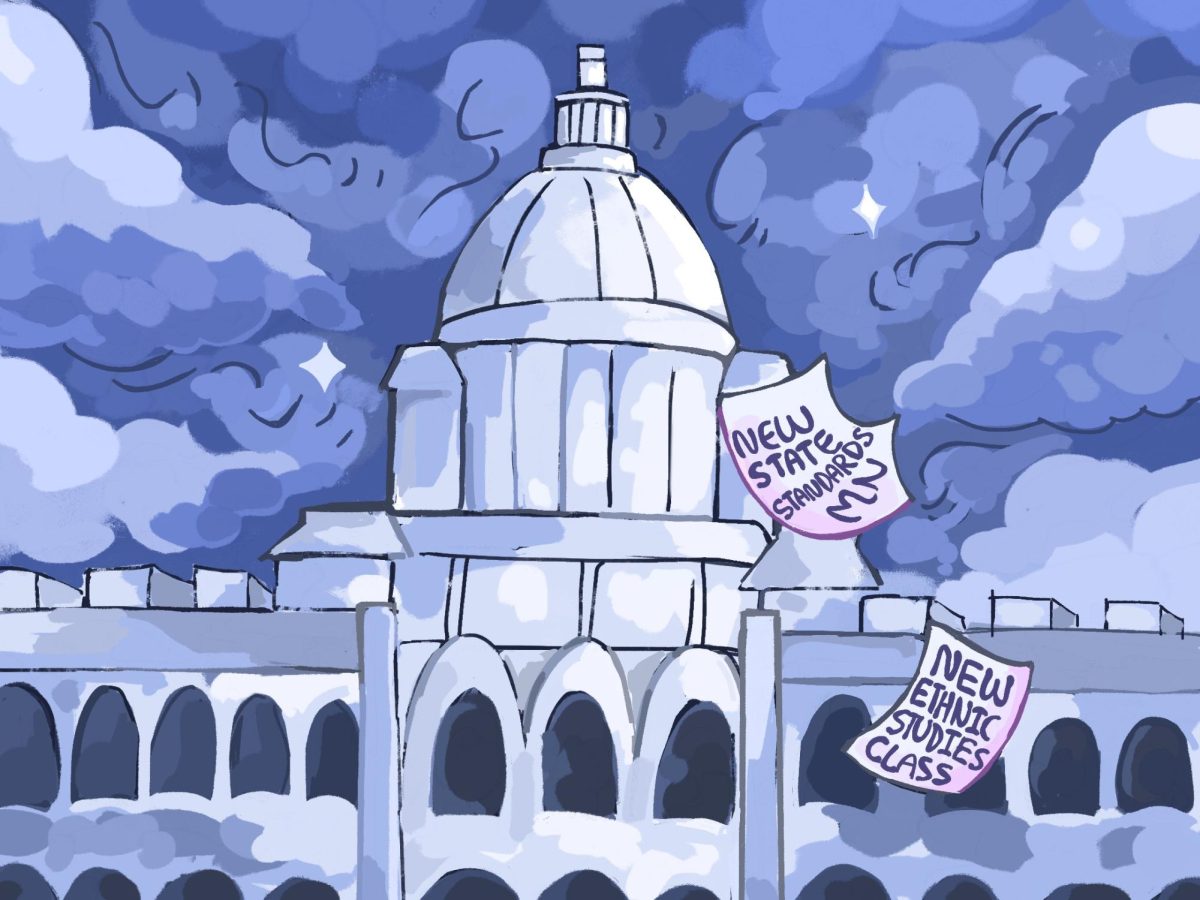On Jan. 8, the Edina School Board approved a proposal by Edina High School’s Social Studies Department outlining a new curriculum for the 2024–25 school year. The proposal fulfills the requirements of the Minnesota state standards issued in late May of 2023 by establishing AP Human Geography and a new course, Cultural Geography, as the social studies option for freshmen. The proposal also condenses government courses into a one-semester class taken senior year.
Minnesota statutes require Minnesota’s academic standards to be reviewed on an approximate 10-year cycle. The recent revision mandated students to take a government and citizenship course in either their junior or senior year as a graduation requirement. Chair of the EHS Social Studies Department and AP U.S. Government teacher Erik Anderson saw the course’s relevance to upperclassmen as the purpose for the specific grade requirement.
“The idea was for [government courses] to be taken closer to when you vote. It’ll be more meaningful if you take it as a junior or senior when you’re on the verge of participating rather than in ninth grade,” Anderson said.
Though meant to provide a more applicable course load to students, the mandate conflicted with the department’s long-established social studies curriculum, and the implementation date of 2024–25 left the department with a tighter time frame.
“My reaction [to the change] was frustration; we had a program that was working pretty well, and somebody at the state level said we had to change and [they] built in little flexibility, and we have to change next year. It made it a little rough,” Anderson said.
The shift in grade level for the government courses left a hole in ninth-grade social studies, which many teachers were adamant about replacing.
“We wanted to make sure that kids in social studies developed critical thinking habits, and [know] how to engage in civic discourse with one another. So we felt very strongly that ninth grade needed a year-long social studies class,” AP African American History and U.S. Government teacher Courtney Major said.
The addition of another required social studies course, however, conflicts with the curriculum’s seven-credit social studies requirement for graduation. As government courses still remain a required course for graduation, the requirement increases to eight credits rather than the original seven. Though the department discovered that approximately 80% of students take eight or more credits, the change conflicts with the flexibility of students choosing their own courses.
“[It has] ramifications on graduation, because now there’s one more credit kids need to graduate. It’s a struggle because it removes an option for students; that’s one semester of an elective,” AP World History and AP Human Geography teacher Claude Sigmund said.
To fill the gap, the Social Studies Department chose AP Human Geography as the Advanced Placement option and created a new course, Cultural Geography, to act as the standard course for incoming freshmen. Cultural Geography analyzes patterns of migration on both a global and local level, focusing on the cultural developments in Minnesota over time. The course also includes elements of government and U.S. history, including a History Day project which was part of the ninth-grade government courses.
The new course also fulfilled another newly proposed state standard, which required schools to offer an ethnic studies course. Though the law stated that the class wasn’t required in the catalog until 2026–27, EHS’s department saw the advantage in establishing it as a ninth-grade course.
“It’s a nice thing to start in ninth grade with a broad base; you’re taking geography and incorporating broad concepts, and then you move that into world history,” Anderson said, “ It’s almost like a pyramid, where you’re moving from [broad] to specific with each class. It’s kinda a nice approach, all the courses will build on themselves pretty well as you go up.”
Major and other social studies teachers have begun outlining the course by planning out specific units and standards, with most of the planning set to occur in the summer of 2024.
Though the revised state standards called for an abrupt altercation in the curriculum, Sigmund emphasized the focus on student impact, “As much as this might impact other teachers and departments, every decision we’re making [revolves around] what would serve the kids the best. And what would not serve the kids is having nothing in ninth grade, and hence this was our best option,” Sigmund said.
This piece was originally published in Zephyrus’ print edition on January 25, 2024.












